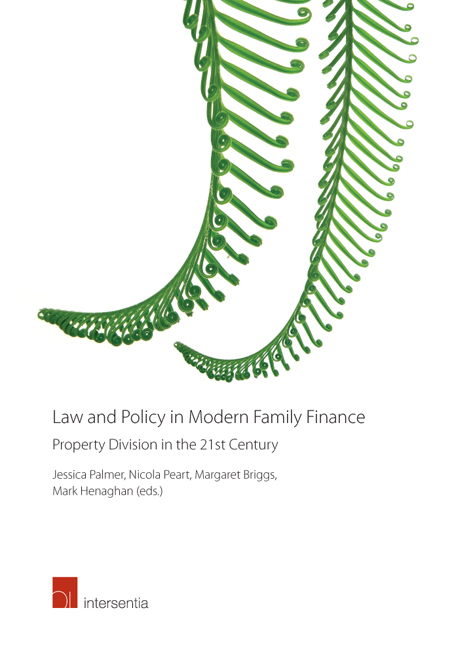Book contents
- Frontmatter
- Foreword
- Acknowledgements
- Contents
- Table of Cases
- List of Contributors
- Chapter 1 Introduction
- PART I WHO SHOULD BE COVERED BY A PROPERTY SHARING REGIME?
- PART II WHAT PROPERTY SHOULD BE COVERED BY A PROPERTY SHARING REGIME?
- PART III HOW SHOULD PROPERTY BE SHARED AT THE END OF A RELATIONSHIP?
- Chapter 11 Should the Regime be Discretionary or Rules-Based?
- Chapter 12 Sharing Family Finances at the End of a Relationship
- Chapter 13 Should a Property Sharing Regime be Mandatory or Optional?
- Chapter 14 Contracting Out of the Default Relationship Property Regime – Comparative Observations
- Chapter 15 Maintenance – Time for a Clean Break?
- Index
Chapter 13 - Should a Property Sharing Regime be Mandatory or Optional?
from PART III - HOW SHOULD PROPERTY BE SHARED AT THE END OF A RELATIONSHIP?
Published online by Cambridge University Press: 29 September 2018
- Frontmatter
- Foreword
- Acknowledgements
- Contents
- Table of Cases
- List of Contributors
- Chapter 1 Introduction
- PART I WHO SHOULD BE COVERED BY A PROPERTY SHARING REGIME?
- PART II WHAT PROPERTY SHOULD BE COVERED BY A PROPERTY SHARING REGIME?
- PART III HOW SHOULD PROPERTY BE SHARED AT THE END OF A RELATIONSHIP?
- Chapter 11 Should the Regime be Discretionary or Rules-Based?
- Chapter 12 Sharing Family Finances at the End of a Relationship
- Chapter 13 Should a Property Sharing Regime be Mandatory or Optional?
- Chapter 14 Contracting Out of the Default Relationship Property Regime – Comparative Observations
- Chapter 15 Maintenance – Time for a Clean Break?
- Index
Summary
INTRODUCTION
The subject of contracting out of a statutory relationship property regime begins with the regime that would otherwise apply. Only with a proper understanding of that regime can one decide whether the grass in another paddock might be greener. The default regime applicable to marriages, civil unions, and de facto relationships in New Zealand is currently the Property (Relationships) Act 1976 (NZ) (‘PRA‘). The PRA was an inspired social ideal compromised by its inept execution. The inept execution is the principal reason that so many couples presently have to contract out.
The New Zealand Law Commission commenced a review of the PRA in 2016. There is now an opportunity to substitute a statutory regime which is not merely enlightened in its social goals, but goes on to achieve them on a sound technical footing. That will require a reform which is courageous, imaginative, and fundamental. The downside is that we will be jettisoning our investment in a very large body of authorities. However, they are authorities encrusted onto a flawed framework. The reward of a new regime is that if we go about it in the right way it will be more simple and logical to apply. It will also remove the need to contract out.
RATIONALES FOR REDISTRIBUTING ASSETS ON SEPARATION
Relationship property law is mainly about the way in which a couple's assets are redistributed on separation. For the reformer, many other important issues need to be resolved along the way. These include the kind of regime (unitary, separate, full, or deferred community), the way in which the regime is applied (rule-based or discretionary), the relationship between the regime and spousal support (integrated or distinct), and the couple's relationship with creditors (enforcement against either, or both, and on what basis). But the topic of real interest to most couples is simply how much each will get if they separate. As that is what drives contracting out, it is the focus of this chapter.
- Type
- Chapter
- Information
- Law and Policy in Modern Family FinanceProperty Division in the 21st Century, pp. 329 - 356Publisher: IntersentiaPrint publication year: 2017

